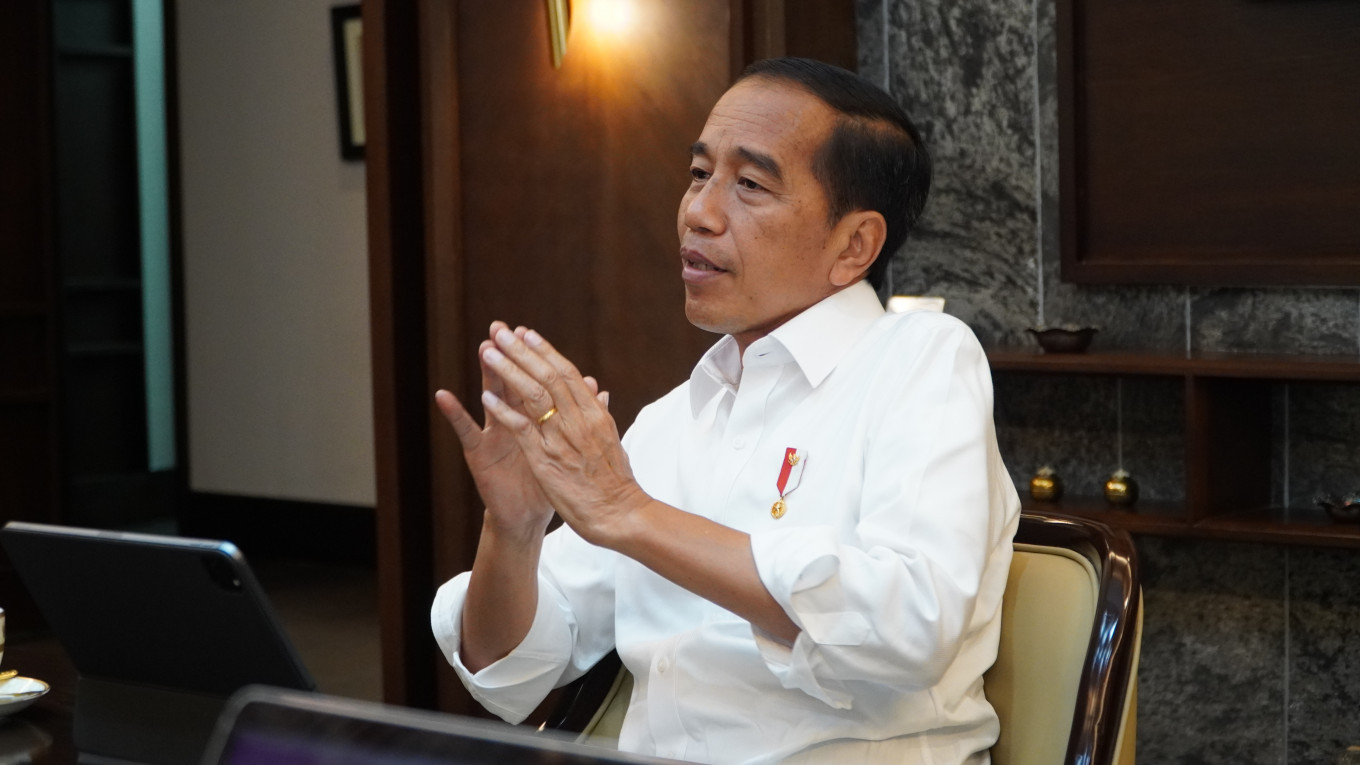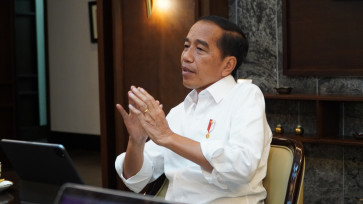Popular Reads
Top Results
Can't find what you're looking for?
View all search resultsPopular Reads
Top Results
Can't find what you're looking for?
View all search resultsAnalysis: Jokowi to maintain influence after succession
Change text size
Gift Premium Articles
to Anyone
P
resident Joko ''Jokowi'' Widodo is entering the final months of his second and final term, with presumptive winner Prabowo Subianto set to be inaugurated in October this year. Although he is constitutionally required to leave office after spending the last 10 years at the helm, Jokowi’s influence in the country’s political landscape looks to remain intact for the foreseeable future.
First and foremost, Jokowi was widely viewed as the kingmaker who helped Prabowo dominate the presidential election on Feb. 14, even at the expense of the Indonesian Democratic Party of Struggle (PDI-P), of which Jokowi is a member and which helped boost him to the presidency in 2014 and get reelected in 2019. The triumph tasted sweeter as Prabowo, with Jokowi's full backing, beat the PDI-P's presidential hopeful Ganjar Pranowo in the party’s traditional voter bases of Central Java, Bali and East Nusa Tenggara.
Although Jokowi will be stepping down from office, he will remain a significant player in shaping the country’s political dynamics through the next generation of his family. His eldest son Gibran Rakabuming Raka is almost certain to ascend to the vice presidency under Prabowo, and his youngest son Kaesang Pangarep leads the Indonesian Solidarity Party (PSI). Meanwhile, his son-in-law Muhammad Bobby Afif Nasution is the current mayor of North Sumatra’s capital Medan.
Rumors suggest that Kaesang might run for either Jakarta governor or Depok mayor in the regional head elections in November, while Bobby already has the support of the Golkar Party and the National Mandate Party (PAN) for his bid for North Sumatra governor.
Jokowi, who has been closely connected with Golkar, has an opportunity to head up the coalition that will be formed to support Prabowo's administration. But the outgoing president’s relationship with the PDI-P and its chairwoman Megawati Soekarnoputri became tenuous when he clearly indicated his electoral leaning toward Prabowo instead of Ganjar. The broken ties between Jokowi and his own party became difficult to mend, especially after Gibran was chosen as Prabowo's running mate.
Former vice president Jusuf Kalla, has expressed his objection to Jokowi’s immediate induction to the leadership of Golkar, which he once chaired. Citing the party’s standing order, Kalla said a politician must be a member for at least five years before they could become a Golkar executive.
Jokowi might use Golkar as his new political vehicle by supporting potential figures to succeed senior economic affairs minister Airlangga Hartarto as party chair. Two such figures are Coordinating Maritime Affairs and Investment Minister Luhut Binsar Pandjaitan and Investment Minister Bahlil Lahadalia who, like Airlangga, are members of Jokowi's cabinet.



















